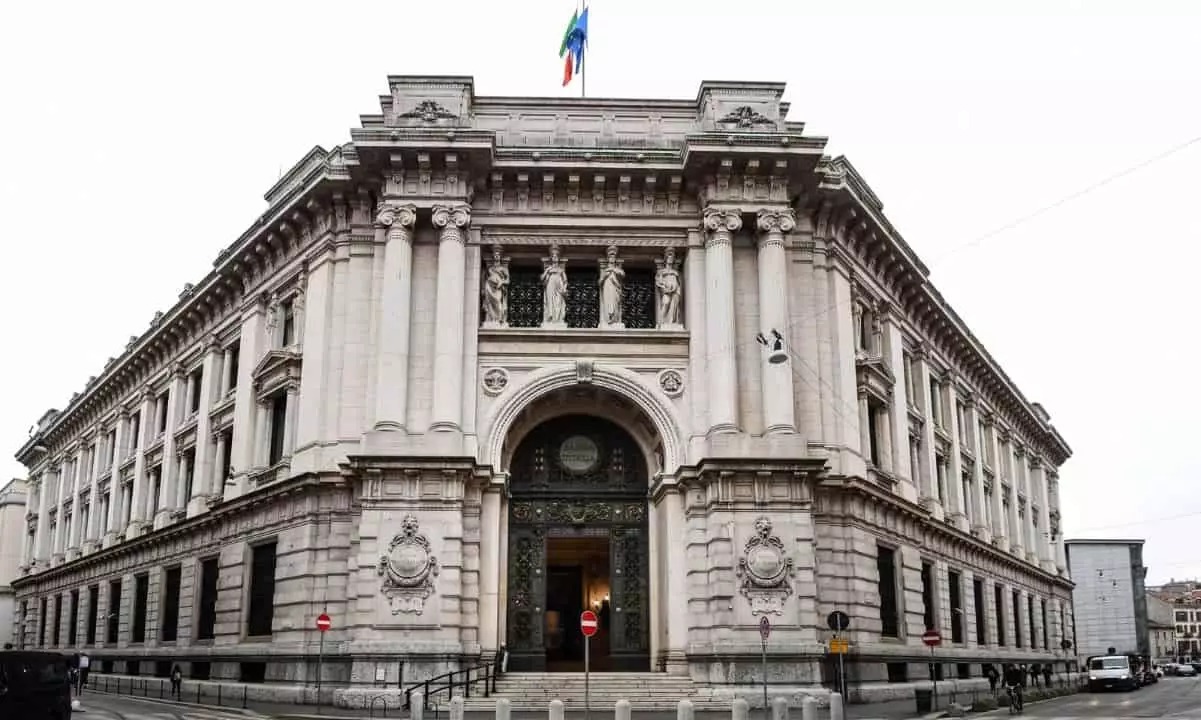In the evolving landscape of cryptocurrency, Bitcoin stands at a pivotal juncture. Numerous global institutions are beginning to acknowledge Bitcoin’s revolutionary potential and its viability as a substantial asset class. Many have even integrated it into their financial strategies, reflecting a significant societal shift towards legitimizing digital currencies. However, this burgeoning acceptance starkly contrasts with the critical perspectives of some regulatory bodies. The Bank of Italy, for instance, has publicly denounced Bitcoin’s peer-to-peer (P2P) services, categorically labeling them as “crime-as-a-service.” This juxtaposition raises essential questions about the future of Bitcoin in a rapidly changing financial ecosystem.
The Bank of Italy’s report highlights the precarious balance that Bitcoin maintains between being an instrument for innovation and a facilitator of illicit activities. Specifically, the institution cited P2P service platforms’ growing involvement in money laundering as a significant concern, particularly in jurisdictions lacking robust regulatory frameworks. The designation of these services as “crime-as-a-service” underscores the institution’s apprehension that the same features celebrated for promoting accessibility and decentralization can also be manipulated for nefarious purposes. By exploiting regulatory gaps, these platforms allow criminals to obscure the origins of funds, posing a considerable challenge to financial integrity.
A core element of the Bank of Italy’s concern lies in the pseudonymous nature of blockchain transactions. While this feature can enhance privacy and facilitate transactions without the need for intermediaries, it simultaneously provides fertile ground for illicit actors. The ability to transact anonymously through disposable addresses makes it immensely difficult to trace funds back to their original sources. Proponents of blockchain technology often argue that its inherent transparency could act as a deterrent against wrongdoing. Nonetheless, as the Bank of Italy indicates, this purported transparency does not deter criminal behavior; rather, it creates a complex environment where due diligence becomes challenging, allowing suspicious activities to flourish unchecked.
The Growing Influence of Decentralized Finance (DeFi)
As Bitcoin’s role in the financial ecosystem expands, so too does the complexity posed by decentralized finance (DeFi) systems. Unlike centralized finance (CeFi), which can be subjected to regulatory scrutiny akin to traditional banking institutions, DeFi operates through a decentralized framework that obfuscates accountability. This lack of central authority exacerbates the issues associated with the pseudonymity of transactions, making it exceedingly difficult for regulatory bodies to monitor financial flows effectively. The Bank of Italy’s report also emphasizes that DeFi platforms, while heralded for their innovative potential, create additional layers of challenges in the fight against money laundering.
As the discourse surrounding Bitcoin continues to evolve, it is crucial for both institutional and regulatory stakeholders to engage in constructive dialogue. The benefits of blockchain technology and cryptocurrencies cannot be overlooked, yet the potential for misuse must be addressed decisively. Solutions may lie in developing new regulatory frameworks that balance innovation with security, ensuring that the transformative potential of Bitcoin is harnessed while mitigating its risk of exploitation. Only then can the global financial community approach a future where digital currencies are seen not just as instruments of speculation but as legitimate avenues for economic empowerment and growth.















